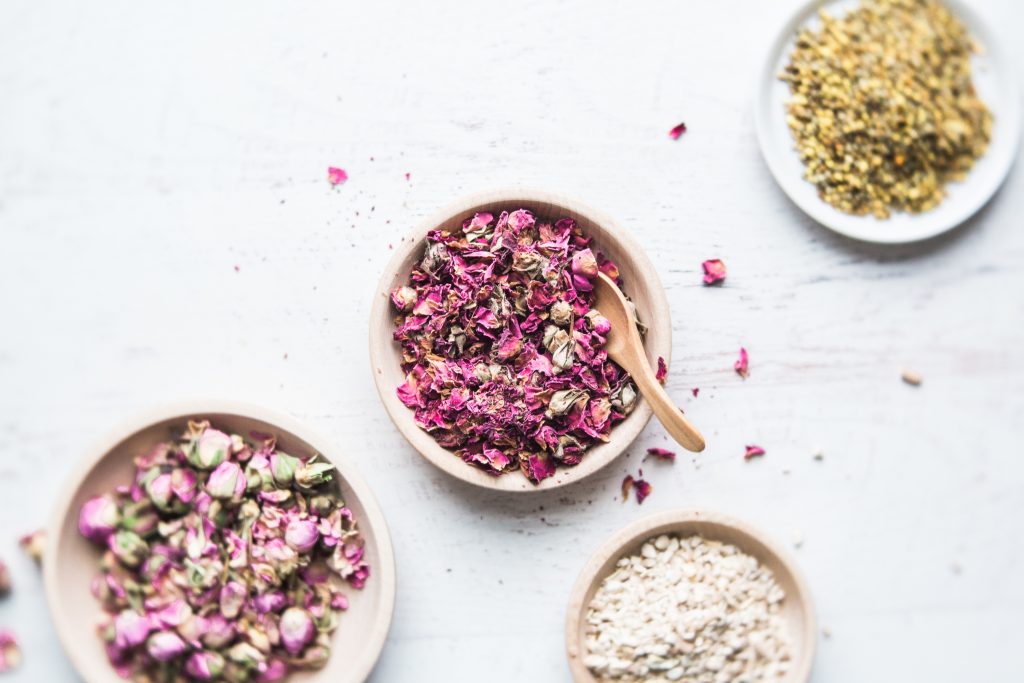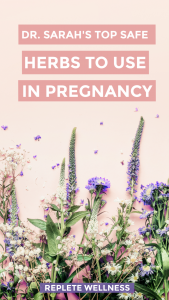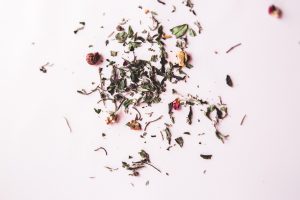Dr. Sarah’s Top 5 Herbs for Pregnancy
November 15, 2017 By Sarah WhiteNo Comments

The desire to avoid unsafe medications has led many pregnant women to seek herbal alternatives with studies estimating that almost 50% of women use herbal therapy while pregnant. While some herbs are safe to use during pregnancy, there are others should be avoided altogether. Many of my pregnant patients seek my care regarding natural medicine because the advice they find online and amongst their mommy friend groups tends to be contradictory and confusing. While well-meaning, the advice offered to pregnant women is often inaccurate and even potentially dangerous. After many requests I’ve finally put together this post to provide science-based and reliable information on the best herbal medications to take during pregnancy. Overall, many herbs have a high safety profile with little evidence of harm. While many conventional doctors are quick to dismiss natural remedies in pregnancy due to a ‘lack of safety data’, we know for a fact that the risk in pregnancy is unknown for 91.2% of the approved medications prescribed to pregnant women. While natural remedies may be gentler and safer than over-the-counter (OTC) and prescription pharmaceuticals it’s still important to follow the best evidence we have regarding their safe use in pregnancy. When choosing herbs it’s important to focus on incorporating ones that are nourishing, tonifying and supportive. The best pregnancy herbs are safe (category A), provide an abundance of vitamins & minerals, and can be helpful for managing common symptoms of pregnancy. Most of the herbs studied in pregnant women need to be used regularly to provide benefit, which means 2-3 cups of herbal infusion daily (1 teaspoonful of dried herbs to one cup hot water – steep covered for 10 minutes). Along with the following gentle herbal recommendations I also encourage my patients to focus on hydration, rest, fresh air, sunshine, relaxation and nutrition – including lots of protein & healthy fats for fetal development. I also generally advise my patients to avoid herbal medicines in the first trimester when the growing baby is most vulnerable.

- Peppermint: Peppermint Leaf makes a delicious tea. It’s traditionally used to improve digestive health and may be helpful in relieving nausea, morning sickness and flatulence in pregnant women. Excess use of peppermint is contraindicated in early pregnancy so drink a maximum 3 cups daily to support digestion and settle the stomach.
- Nettle: It’s mild diuretic properties help reduce the fluid retention that results from the changes to intra-thoracic pressure during pregnancy. It’s also rich in vitamins and minerals, especially iron, which is essential for a healthy pregnancy. Nettle leaf can also improve elasticity of the veins to help prevent varicose veins and haemorrhoids. Since it’s extreme nutritive many of my patients also report that it combats fatigue during pregnancy and helps them to feel more energized throughout the day. Dried nettle is widely used as a nourishing tonic for pregnant women and is included in many herbal teas for pregnancy. However, it’s important to only use dried nettle leaves since fresh nettle has uterine stimulant action and is contraindicated in pregnancy.
- Ginger root: Ginger is a beautiful anti-nauseant and anti-emetic and there are 2 large clinical trials showing efficacy and safety in using ginger root to treat nausea of pregnancy. While ginger can be consumed as a tea I find many patients need a stronger dose in the to help combat nausea. In these cases I often prescribe up to 1g daily as a supplement, taken in divided doses.
- Cranberry: Urinary tract infections are common in pregnancy due to anatomical and hormonal changes. It’s important to try and prevent these infections during pregnancy since we know that untreated UTIs can cause low-birth-weight infants, premature delivery, and occasionally stillbirth. Cranberry is a commonly used herbal medicine for urinary tract infection prophylaxis and treatment. There is evidence from studies with both pregnant and non-pregnant patients that suggests that Cranberry can be helpful for reducing UTI recurrence and has no negative fetal or pregnancy outcomes (this was identified in a large retrospective cohort study involving over 68,000 women).
- Echinacea: This common herb has been shown to reduce duration of upper respiratory tract infections in pregnant women and is one of the only immune supportive herbs that has been proven safe to take while pregnant. During pregnancy your immunity changes in order to ensure that your immune system doesn’t affect the foreign genetic material growing in your uterus (remember your baby only receives half of it’s DNA from you while the other half is provided by the male). This leaves pregnant women vulnerable to many environmental pathogens … meaning they get sick a lot! Contrary to what people think echinacea is not particularly efficient when taken at the first sign of colds and flu symptoms and needs to be in your system for a few weeks before it effectively influences the immune system. While I often recommend a lose dose echinacea supplement during pregnancy it’s important to check with your Naturopath or herbalist to make sure you’re taking a high quality, standardized brand. Many products found at the pharmacy and health food store don’t actually contain echinacea, as it’s one of the most frequently adulterated herbs on the market.

References:
- WY, Friedman JM. Teratogenicity of recently introduced medications in human pregnancy. Obstet Gynecol 2002. Sep;100(3):465-473. 10.1016/S0029-7844(02)02122-1
- Hoffman, D. (2003). Medical Herbalism: The Science and Practice of Herbal Medicine. pg 591.Rochester VT. Healing Arts Press
- Hardy M. “Herbs of special interest to women,” Journal of the American Pharmaceutical Association 40, 2 (2000 March/April): 234-239.
- Pinn G and Pallett L. “Herbal medicine in pregnancy,” Complementary Therapies in Nursing and Midwifery 8 (2002): 77-80.
- Ranzini A. “Use of complementary medicines and therapies among obstetric patients,” Obstetrics and Gynecology 97, 4 Suppl. (2001 April): 46.
- Vutyavanich T, et al. “Ginger for nausea and vomiting in pregnancy: randomized, double-masked, placebo-controlled trial,” Obstet Gynecol 97, 4 (2001): 577-582
- Kennedy DA, et al. ‘Safety classification of herbal medicines used in pregnancy in a multinational study.’ BMC Complement Altern Med. 2016 Mar 15;16:102.
- Lee M, Bozzo P, Einarson A, Koren G. Urinary tract infections in pregnancy. Can Fam Physician. 2008;54(6):853–854. [PMC free article] [PubMed]
Disclaimer: Herbal medicine work best when used over time as a part of a healthy lifestyle. Herbs can be are very powerful and must be used carefully. It’s important to consult your Naturopathic doctor or herbalist before using herbal medicine during pregnancy since they know your health history and any contraindications.
Looking to connect with a Naturopath in Oakville to discuss your health goals and help guide you through a healthy pregnancy? Book your in-person appointment here.
If you’d like to work together and you’re not a resident of Ontario*, or if you do live in Ontario and you’d prefer an online consultation you can book online with Dr. Sarah here.
This information is not intended as a substitute for the advice provided by your Naturopathic doctor or primary care physician. Do not use the information in this document for diagnosing or treating a health problem or disease. Always speak with your Naturopathic doctor before taking any medication or nutritional or herbal or using any treatment for a health problem. If you have or suspect that you have a medical problem, contact your health care provider promptly. Do not disregard professional medical advice or delay in seeking professional advice because of something you have read online.
COMMENTS
Leave a Reply
This site uses Akismet to reduce spam. Learn how your comment data is processed.
Mauren Meneses says
MAY 13, 2021 AT 8:15 AM
Hormonal issues and nutritional help
Reply